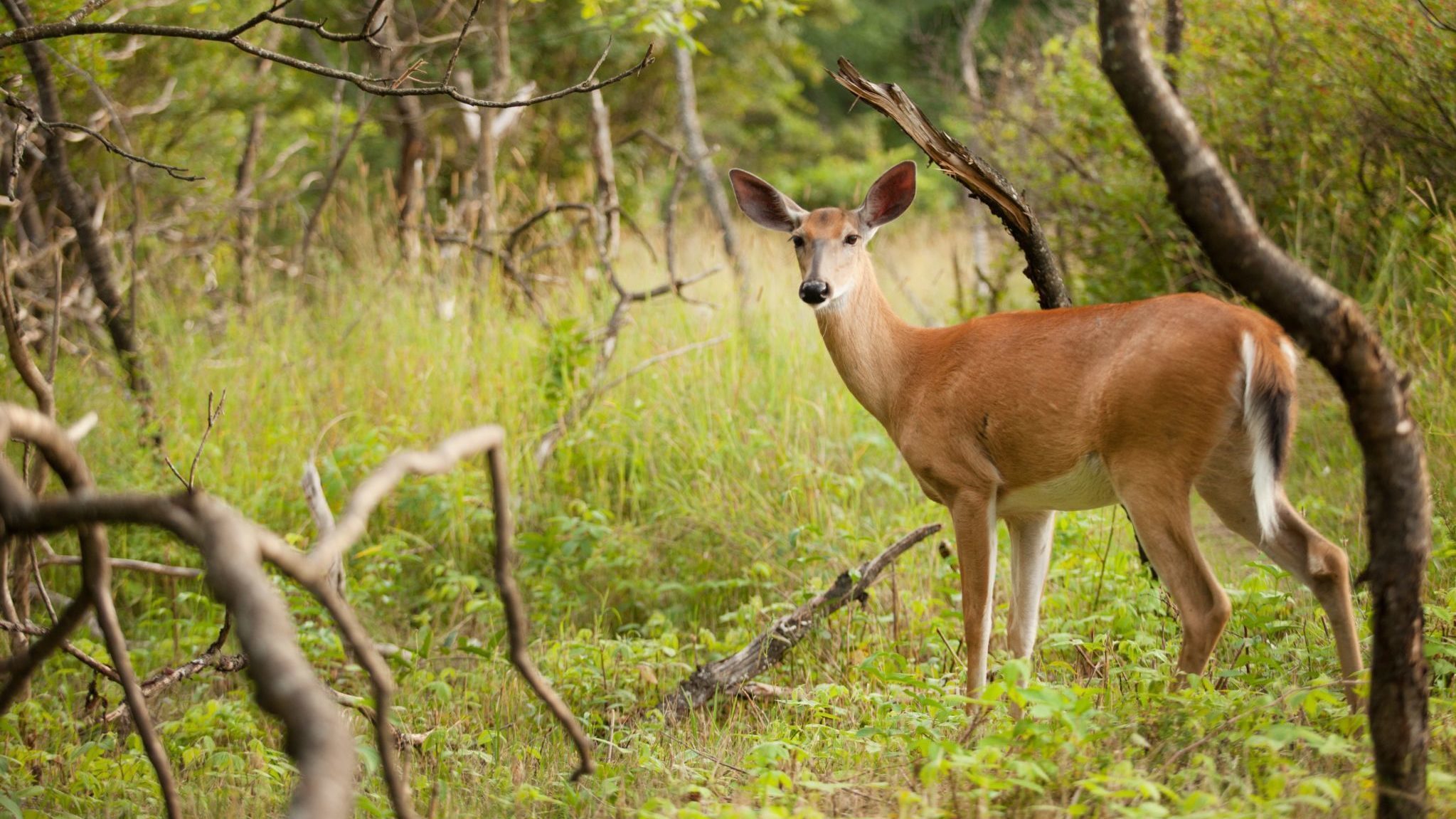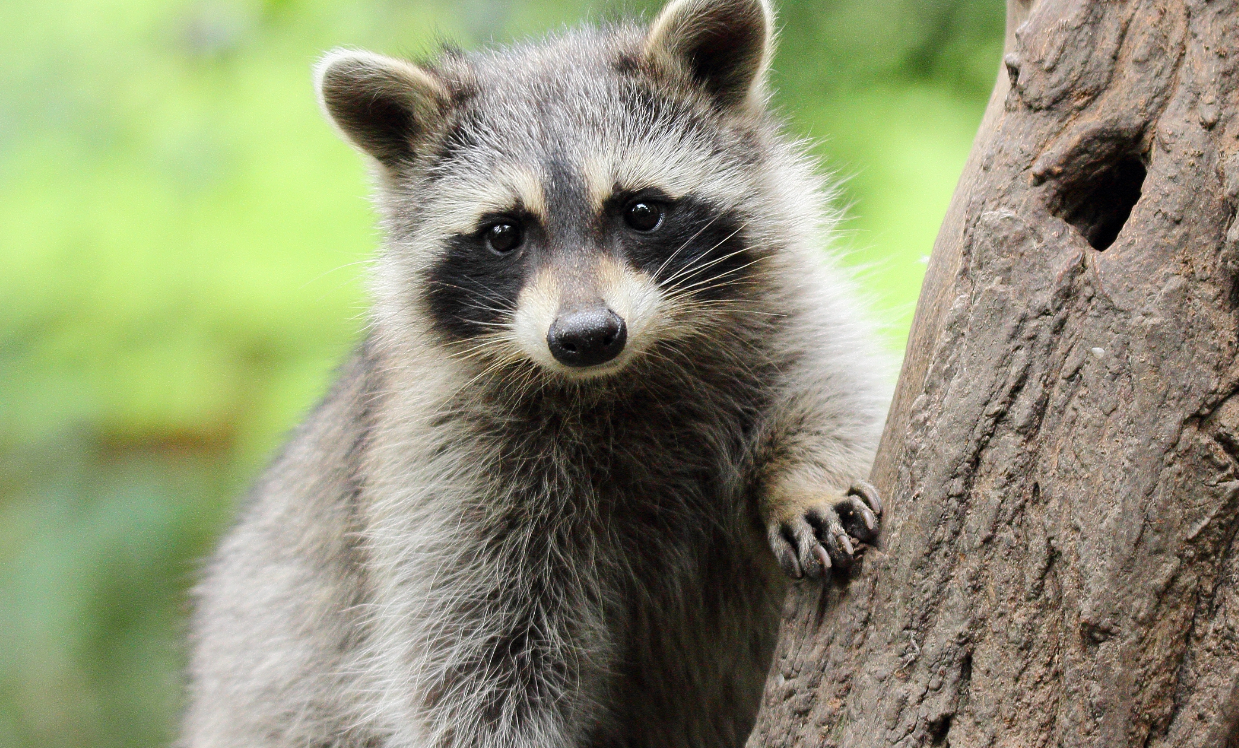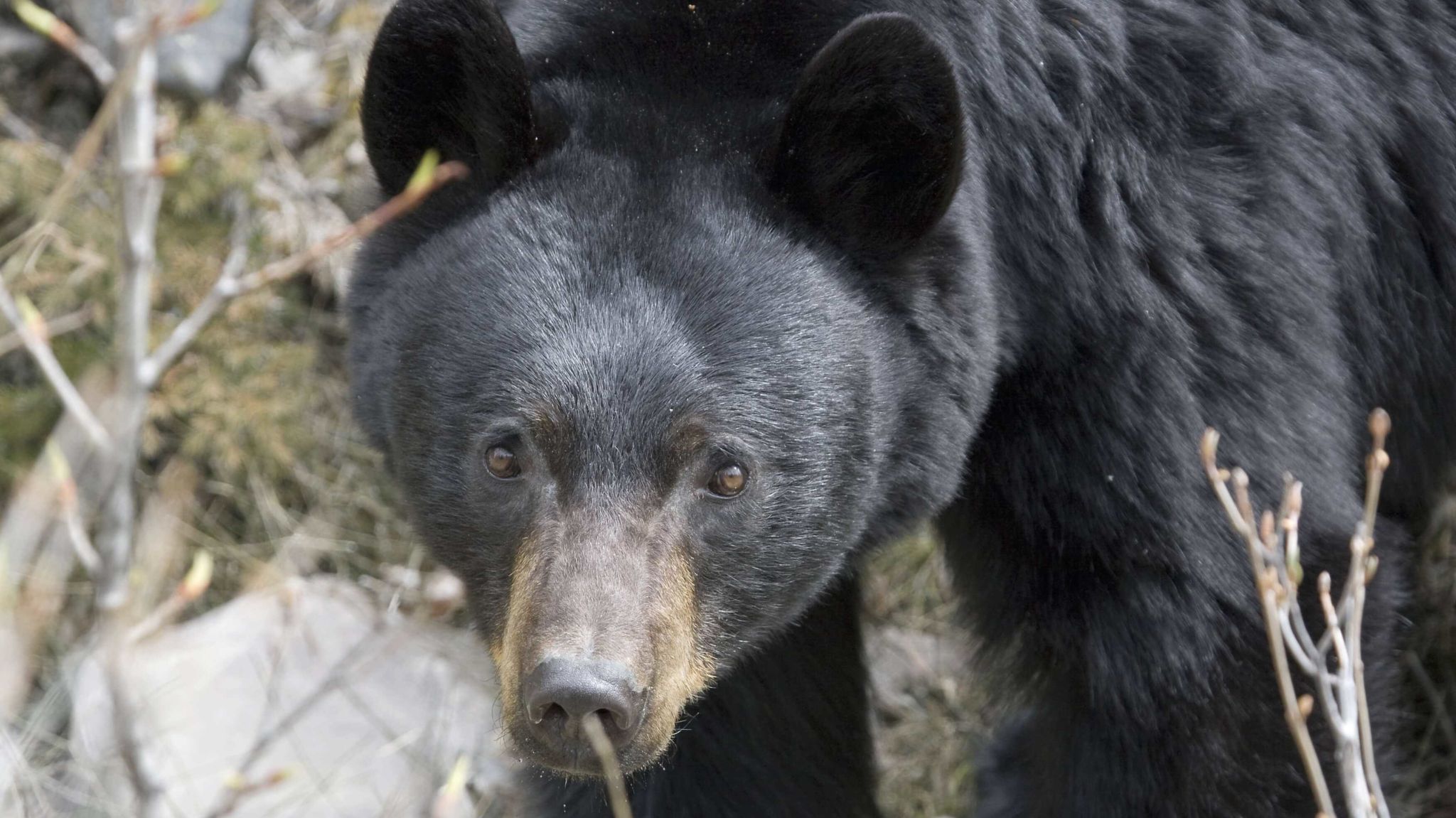Gatineau Park is the Capital’s conservation park, and we are proud to welcome 2.6 million visits per year. Regardless of the activity that you enjoy in the Park, it is important that you always be aware that the area is first and foremost a wildlife habitat. Here are five tips for Gatineau Park users to help respect the Park’s wildlife.

1. Keep your distance from wild animals, and never feed them
Feeding a wild animal makes its less wild and more vulnerable to danger. People food can also cause health problems, because it is not part of an animal’s natural diet.
Wildlife must remain wild, because they have to be able to survive alone in nature. For this reason, as well as for safety reasons, it is prohibited to feed animals in the Park. It is also important to remain a safe distance from wild animals.
2. Make noise
When you are walking in the Park, make noise, clap your hands and talk loudly. By making noise, you are letting any nearby animals know that you are there. This will also help you avoid surprising an animal and causing it to act defensively. Also, avoid hiking and walking alone at dawn and at dusk.
Most animals, even bears and eastern coyotes — which are rarely seen — avoid human contact, because they do not want to be disturbed. To avoid them, it is enough just to let them know that you are there.
3. Store food properly and avoid odours
Be sure to properly store your food and your belongings. Animals, especially raccoons, are attracted by smells, which can come from many sources: picnic food, scented products, waste and so on.
To avoid attracting animals through food odours when you are hiking, use sealable containers. When camping, be sure to store your food in the trunk of your vehicle. Raccoons are very adept at opening coolers. Leaving food within view in the back seat of your vehicle can also attract animals. If you can’t put your food in the trunk of your vehicle, place it in a bag and hang it from a tree branch at least three metres above the ground and one metre from the trunk of the tree.
Never forget that we are guests in animals’ natural habitat. We are responsible not to disturb them and not to approach them.

4. Properly dispose of waste
Always be sure to dispose of your garbage in the containers provided for this purpose in Gatineau Park. While camping, keep your garbage in the trunk of your vehicle until you can dispose of it in the garbage containers, and do so before nightfall.
Waste pollutes the Park’s natural environment, and can be accidentally ingested by animals. For example, fishhooks and fishing line can injure aquatic birds, and plastic bags or pieces of plastic can suffocate small mammals.
5. Follow instructions
The Park’s conservation team posts signage advising users about certain precautions to take in some parts of the Park. Currently, we are asking users of lakes in the Park to keep away from loon nesting sites, which are identified by floating signs.
The message “Caution! Turtle crossing.” is displayed on electronic signage to warn motorists during the main egg-laying season for turtles (June to early July). About one month ago, we closed some parts of the Eardley Escarpment for the peregrine falcon nesting season. These advisories are issued to protect Park animals.

What should you do if you see a bear or coyote?
There are several ways to react when confronted by a wild animal. Although confrontations are rare and each one is unique, it’s important to be informed and cautious. Learn more.
If you see a bear or coyote, report your sighting to the Gatineau Park Visitor Centre.
Contact the NCC emergency line if you observe an animal behaving in a way that could put Park users at risk. Call 613-239-5353.
I hope that you will follow these tips on your next visit to Gatineau Park and that they will help you to enjoy the Park while also respecting the wildlife.